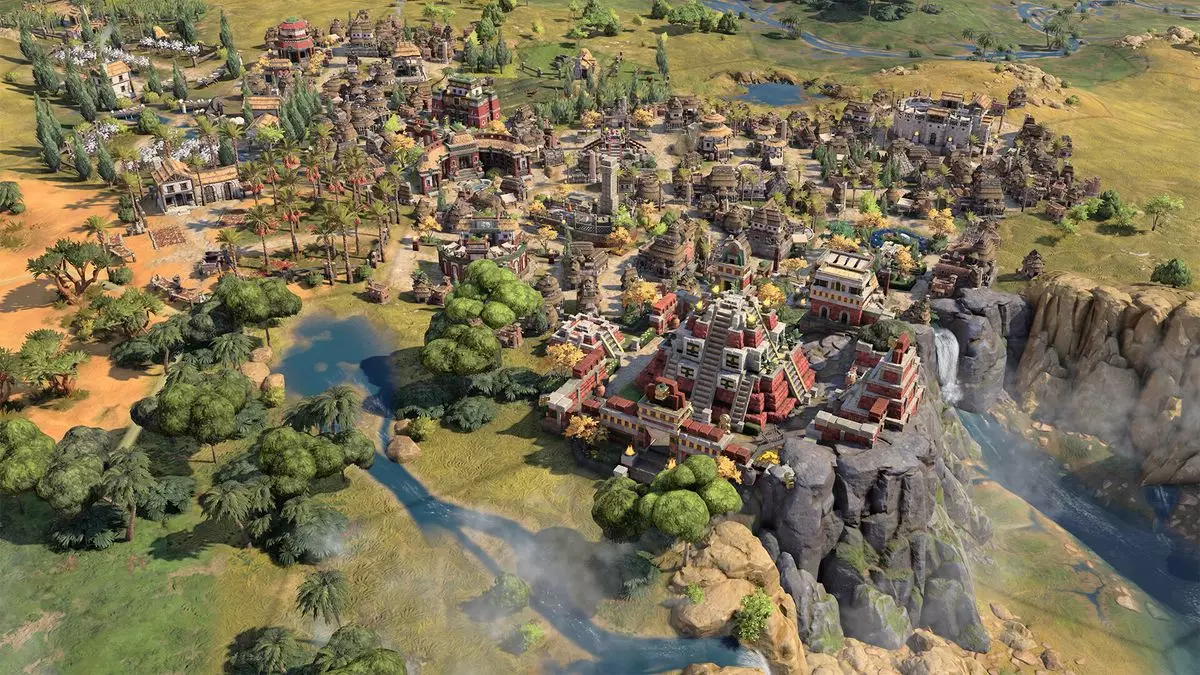The Civilization franchise has long been celebrated for its intricate gameplay, which combines strategic depth with historical progression. With the upcoming release of Civilization 7, the developers are poised to introduce a groundbreaking mechanic known as the Ages system. This innovative feature is set to redefine how players interact with the game, ushering in a fresh approach that departs from the conventional methodologies established in previous titles. This article delves into the implications of the Ages system, examining how it will impact gameplay, player strategy, and the overall experience of Civilization 7.
The Ages system introduces a new structural framework within each match by segmenting gameplay into three distinct periods. This segmentation allows players greater freedom to adapt their leaders and Civilizations throughout the course of a match. Executive producer Dennis Shirk has emphasized that this change is one of the most significant yet daunting alterations made to the franchise. Unlike previous games where players typically settled into a defined strategy early on, the introduction of Ages promotes a dynamic environment. Each Age presents unique challenges and opportunities, permitting players to rethink their tactical approach multiple times as they progress.
This evolution in game structure not only enhances replayability but also encourages experimentation. Players eager to find effective strategies must continuously adapt their playstyles instead of relying solely on established frameworks. As a result, every match becomes a learning experience, demanding players to explore diverse strategies for success.
One of the most compelling aspects of the Ages system is its emphasis on exploration and discovery. Unlike earlier iterations, where the sense of discovery was often confined to the initial stages of a match, the new system allows players to experience moments of revelation throughout the game. According to Shirk, players begin in the first Age with limitations—such as the inability to sail across oceans. As they progress to subsequent Ages, these limitations are lifted, enabling access to advanced technologies and exploration.
This graduated unlocking of capabilities provides players with opportunities for strategic growth and re-evaluation of their tactics. For example, once players transition to the Second Age and gain advanced shipbuilding skills, they can explore new territories, forming alliances or engaging in conflicts that would have been impossible in earlier stages. The understanding that players can reinvent their strategies as the game progresses fosters a deeper engagement with the gameplay mechanics and ensures that no two matches will play out the same.
Another significant advantage of the Ages system is the strategic versatility afforded to players. With the ability to change civilizational alignments and leaders throughout the match, players can mix and match strengths and weaknesses to suit their evolving conditions. This functionality dramatically expands the available tactical options. Each civilization, associated with distinct characteristics and abilities, complements player preferences, allowing them to tailor their gameplay more finely to their styles.
Moreover, each leader comes equipped with a unique attribute tree, offering further customization possibilities. This significant customization element promotes an exciting element of synergy, where players can explore novel combinations that have never been seen in the series before. Such distinctions ensure each player’s experience is personalized, challenging players to optimize their strategies based on the unique attributes of their chosen leaders and civilizations.
While the introduction of the Ages system marks a revolutionary step forward for the Civilization series, it also presents challenges for long-time fans accustomed to the established formula. Ed Beach, the creative director, acknowledged that adapting to this new structure may be one of the most thrilling yet challenging hurdles for players. Nevertheless, the excitement surrounding the potential rewards—deeper strategic engagement, tailored gameplay, and dynamic experiences—suggests that the learning curve will ultimately be rewarding.
Shirk assures players that the Ages system has been developed with thoughtful consideration and extensive testing. As fans anticipate the game’s launch on February 6, 2025, the introduction of the Ages system promises to enhance the beloved franchise while maintaining its core essence—a key factor in ensuring both new and returning players can find joy in the world of Civilization once more.
As Civilization 7 approaches, the unveiling of the Ages system sets the stage for an exciting evolution in strategic gameplay. By fostering exploration, customization, and continuous adaptation, this new mechanic invites players to engage with the game universe in unprecedented ways. While it may challenge traditional gamers, the promise of a richer, more engaging experience is one that many are ready to embrace. The next chapter in the Civilization saga is upon us, and it holds the potential for countless unique adventures and strategic breakthroughs.


Leave a Reply